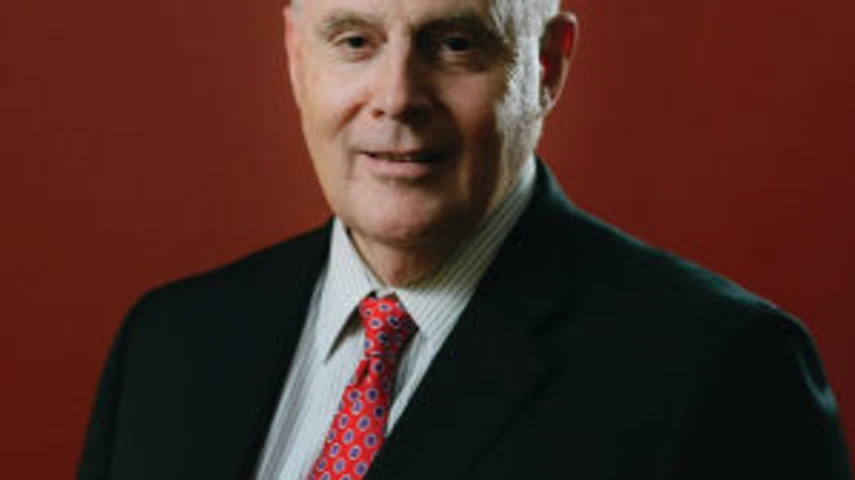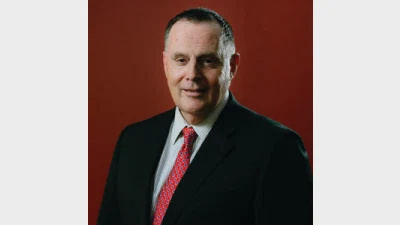Easton Investments: We have a strong value proposition for the accounting profession



MM: What are your general thoughts on the market in this new environment?
Greg Hayes: Obviously it’s been a turbulent time for the market post-Royal Commission in that it’s created some levels of uncertainty. I think for advisers it’s been a difficult time too because they have the Financial Adviser Standards and Ethics Authority (FASEA) education requirements coming through. So there have been a lot of changes for advisers and coming out of the Royal Commission it’s caused some negative perception in the adviser market. This has created some challenges for both advisers and for dealer groups.
For dealer groups it’s really pointed out that you need to ensure that your systems and your compliance are up to market expectations.
I think most dealer groups have increased their investment in those areas and [they] are also working hard with their advisers to bring them consistent with the expectations of the market and the regulator. And obviously the regulator is much more active in the market at present. It’s important to ensure that while the market is going through this change process and is resetting to the expectations and changes applied through the Royal Commission that everybody is prepared and well-organised for the changes coming through.
I think also that at the dealer group level you either need to be quite boutique or you need to have scale. We’ve taken the view that we want to operate at the scale level. We think we have some significant differentiation and in part that differentiation in the marketplace is quite noticeable because we have this large group of accountants who are on our licence and we have a strong accounting relationship.
We have a strong focus on advisers and are trying to make sure that they are growing and developing successful businesses.
MM: How has your business evolved over the last years?
GH: Both GPS Wealth and Merit Wealth are owned by Easton Investments which is a publicly-listed company. Merit was one of the first businesses that we took in to the Easton Investments together with a couple of other businesses back in 2014.
Merit was established to provide financial services through the accounting channel so it has a specific focus on the accounting market. Subsequently in 2017 Easton acquired GPS Wealth, which is a well-established, larger dealer group that provides dealer groups services to independent financial planners around the country. SMSF Expert was acquired by Merit Wealth last year and SMSF Expert again deals with the accounting profession and it only provides a limited authorisation to accountants. Merit has both full advisers and limited authorised reps who only work in the self-managed superannuation fund (SMSF) space whereas SMSF Expert only has accountants working in the SMSF space.
MM: Given the growing number of advisers, how would you describe your business strategy?
GH: Our strategy is to be a significant provider of services in the wealth space. We have a strong value proposition for the accounting profession as we have one of the largest cohorts of accountants under licence in Australia.
Increasingly we see accounting and wealth services converging and we are uniquely positioned here with a national adviser force comprised of both independent advisers and accountants. The combined engagement of adviser and accountant will generally result in a superior client outcome.
At the present time, the group has close to 780 advisers, and is a significant provider of wealth services into the Australian market through its two primary brands: Merit Wealth and GPS Wealth.
MM: How did the post-Royal Commission environment affect your business?
GH: There’s nothing that came out of the Royal Commission that caused us any great surprises and because both of our businesses are relatively young businesses by comparison to some much longer-established businesses we don’t have the same challenges with the grandfathered commission and legacy income streams. Our businesses are relatively young and primarily developed on the fee-to-services basis.
I don’t think that this Royal Commission was surprising in terms of the changes that were proposed. We are quite supportive of the recommendations and also the underlying philosophy – consistent with the Royal Commission – which is to make sure you are always acting in the best interest of your clients.
So basically no differences and no great challenges there. Having said that, like most other dealer groups we’ve significantly increased our investment in both the training space and compliance area to make sure we are capturing information in relation to adviser activity and adviser trends. High quality adviser education and support are essential in today’s market.
MM: Who are majority of your clients?
GH: The majority of our clients are everyday Australians. We are not a dealer group that is specifically targeted towards any one sector of the market. We are not a dealer group that is targeted solely towards individuals – our typical client is the owner of a small or medium business, an SMSF or a person with investment portfolio – mums and dads of Australia.
And that’s because our advisers are accountants practice across the country. The intent of what we do in the wealth space is to assist them to provide a financial services capability to their clients.
MM: What is your view with regards to the evolving business model and self-licensing?
GH: In terms of self-licensing, there’s obviously been an increase over the past year.
The fact is that the larger institutions have or are exiting from distribution in the advice space – this will result in a smaller number of advisers in the marketplace progressively over the next four to five years. A significant number of advisers will be aligned to dealer groups such as ours who have the capabilities to provide a range of services: back office services, compliance services, training, and engagement services.
Advisers will choose whether be aligned to a group like that or they may choose to be self-licensed? Those who choose to be self-licensed, are still going to need to buy in some of those services because the challenge with the self-licence is that you can’t do it all yourself, you can’t be all things. We see ourselves as a service provider to the self-licensed market.
MM: What are, according to you, the potential red flags across the industry moving forward?
GH: I think the two most visible issues for the future will be the removal of grandfathered commissions and legacy income streams, together with the changing education requirements.
These are certainly going to have an impact on dealer groups.
There is no question that the education requirements over the next four or five years will cause some people to exit the industry. I think the change in education standards and the professional requirements coming through FASEA will cause challenges for some people.
Fortunately there’s a transition period but there will be people who will exit the industry before then.
But there will be enormous opportunity and a lot of work for the advisers who progress through the transition period. The opportunity from the dealer groups point of view is to continue to do what we do and help our advisers successfully work through that transition period and continue to build high quality, client centric and advice business.
Recommended for you
Marking off its first year of operation, Perth-based advice firm Leeuwin Wealth is now looking to strengthen its position in the WA market, targeting organic growth and a strong regional presence.
In the latest edition of Ahead of the Curve in partnership with MFS Investment Management, senior managing director Benoit Anne explores the benefits of adding global bonds to a portfolio.
While M&A has ramped up nationwide, three advice heads have explored Western Australia’s emergence as a region of interest among medium-sized firms vying for growth opportunities in an increasingly competitive market.
Private wealth firm Escala Partners is seeking to become a leading player in the Australian advice landscape, helped by backing from US player Focus Financial.











